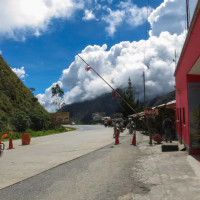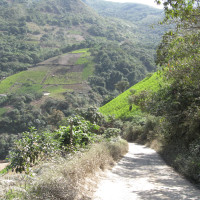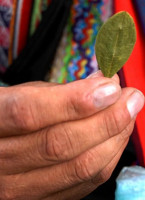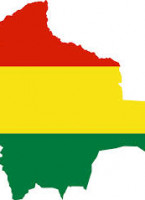New Tactics from a divided MAS
Topics
Regions
The principal change in the Bolivian political scene at the national level in the course of 2023 is the split in the governing party MAS, into two factions, known as ‘renovators’ versus ‘radicals’, and identified as supporting either the current President of Bolivia, Luis Arce Catacora (hence ‘Arcistas’), or the ex President and President of the party, Evo Morales (the ‘Evistas’). The symbolic bone of contention is which of these should be the party’s candidate in the general election forthcoming in 2025. After having declared that standing for re-election an indefinite number of times was a human right, thus establishing Morales as a potential candidate, the submissive judges reconsidered this decision and declared that, having been elected as President three times, he is no longer eligible, but his supporters consider that this has not put him out of the running since it is equally possible for this judgment to be reversed in turn: it all depends on procuring magistrates who obey the ‘radical’ line.
This is part three of a series. The first installment 'If the MAS government is a coca growers’ government, why are the Yungas coca growers against it?' and 'Dirty Deals in Bolivia: The continued war on ADEPCOCA'

Pien Metaal
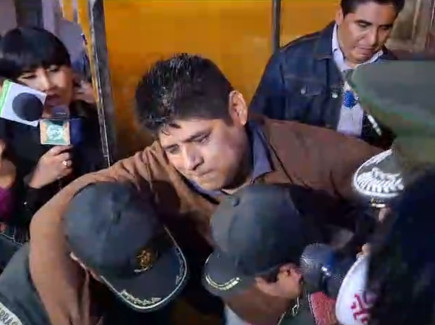
The surprise came on 14th August, when the government declared that Alanes’ ‘point of sale’, which had continued to function with a low level of activity (once again, it is assumed, with coca from the ‘red zones’ and areas like Larecaja and Caranavi, ‘legalized’ by the Law 906 but never accepted in ADEPCOCA) was in fact an illegal market and closed it down, recognizing the ADEPCOCA market in Calle Arapata as the only legal one. That is, they finally proceeded to comply with their own law. Had they done so from the first day when Elena Flores’ parallel ADEPCOCA opened their first market, they would have avoided literally years of conflict. The reason why only now did they decide to apply the law was that Arnold Alanes continued to appear in public with Evo Morales; his market was shut down not for being illegal, but because his parallel organization was ‘evista’.
By this time, the directory elected with Machicado had only three months left before their two year term ran out on November 22nd. Some Regionals began to demand that they convoke elections for that date (90 days is the standard time period for convoking elections in Bolivian peasant syndicalism, although ADEPCOCA’s own statute is silent on the topic). Others supported the directory’s position that as long as Machicado was in prison, but still the nominal President, they all had to continue as a sign of support for him. It was claimed that 12 of the 17 Regional Presidents rejected elections. ADEPCOCA’s statute dates from 1985, when it had only a few hundred members and almost all were from Coripata. The first Regionals began to appear after 1988, when the organization bought the Market in Calle Arapata, and their initial function was to administer the galpones or hangars where coca is sold.
Since then one and another Regional appeared, usually splitting off from the first ones to be created, and by 2017 there were 16, mentioned in the Law 906; since then a seventeenth has been created. Some have over 5,000 associates, others around 2,000 and still others less than 1,000, but in the meetings in the Departamental each President has an equal vote. Up till now Coripata has successfully resisted attempts to bring the Statute up to date; one of its many absences is that Regionals are not even mentioned in it and much less is there any attempt to define what they can or cannot do, and when the Departmental leadership is obliged to consult them – or their Presidents, obliged to consult their membership – and when one or other of these levels can take decisions without needing to consult or inform the other levels. This was one of the topics where many Presidents acted without considering the opinion of their members, most of whom were sick of the Departmental leadership, considering them to be government sellouts, that their supposed professional administration had only made more doubtful what they were doing with the money, and Machicado’s silence meant that he was unworthy of support.
The next big surprise came on October 5th, when Machicado was released from prison, without any previous announcement or clarification of his legal circumstances, apart from having accepted the abbreviated process, but without defining which if not all the fifteen charges he had admitted being guilty of. The next day he appeared in his home Regional of Chamaca accompanied by Ernesto Mamani, Executive Secretary of the pro government COFECAY, which got him a cold welcome, being taken as proof that he had sold out to the government in exchange for his release, although he said that it was due to the good work of his legal team, without more details. On the 25th October, Daynor Choque, the President of Regional Coripata imprisoned as intellectual author of the death of the policeman supposedly shot in Auquisamaña in July 2021, was released. He had not accepted the abbreviated process, although he said (to me in a personal visit in San Pedro Prison) that Machicado constantly encouraged him to do so, and in the course of his two years inside the prosecutor had gradually dropped the serious charges, starting with those referring to the death, until he was left only with the lesser offences of public incitement to commit crimes and destruction of state property, and was released on probation. One has to assume on this basis that the supposed death was indeed a government fabrication in order to bang him up, as so many in Yungas presumed.
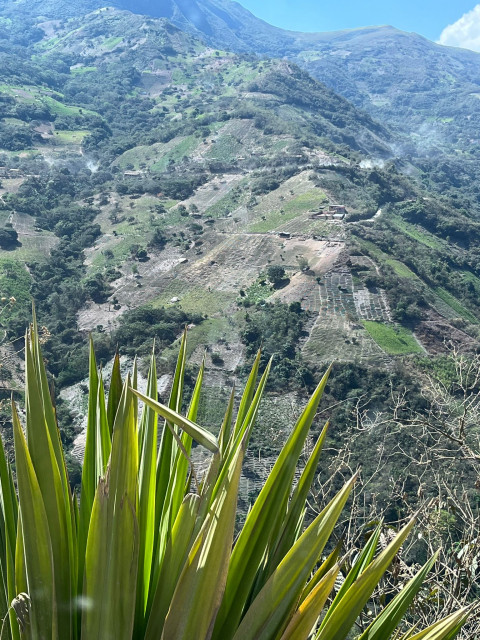
Pien Metaal
The brewing discontent with respect to the ADEPCOCA leadership finally exploded on November 3rd, when Freddy Machicado called a press conference to denounce embezzlement (desfalco) of around half a million Bolivianos (70.000 US) from the funds of ADEPCOCA, leaving barely Bs24.000 (almost 3.500 US) in cash, for which he was going to present criminal charges. Presumed responsible were Erlin Pari (representing Coripata), the Treasury Secretary, the two hired administrators (also both born in communities in Coripata), with the rest of the directory as accomplices. A rain of other accusations followed, ranging from nepotism (the chief cashier, who officially handled all the funds, was said to be Erlin Pari’s niece) to constant gluttonous1 drunken parties with prostitutes included in the head office, all paid for with ADEPCOCA money. Machicado said that during the mobilization in September 2022 which climaxed in the sack of Alanes’ market, fearing that the conflict might lead to another police intervention in the legal Market, he had ordered Pari to take the Bs170.000 (US 24.000) in cash then in hand to Coripata for safekeeping, and Pari had never returned this money. Pari said that he would present documents to discharge Bs300.000 (24.000 US) at present unaccounted for; other members of the directory said that Machicado himself had withdrawn Bs28.000 (4.000 US) since he got out of prison claiming that it was for his legal costs, the Vicepresident, Reynaldo Laura representing Inquisivi, who had formally been in charge during Machicado’s absence (although it was general knowledge that Pari and his claque really held the reins) said that his wife had died and he had to keep going back to the province to see to his house and children, as an excuse for not having kept an eye on what the rest were doing, and so on and so on. Whatever the truth might be, it was evident that the directory had to go, and they called an assembly for the 22nd of November, where the grass roots would decide what to do.
Meanwhile down in the coca fields, various Regionals had problems of their own. In Asunta, Alexander Cruz, part of Alanes’ parallel ADEPCOCA, acted as President representing the red zones (where coca cultivation is officially illegal) who had been given producers’ cards by Flores or Alanes, and he himself was said to have renewed or emitted these cards to up to 2,000 people, charging them Bs2,000 or 3,000 (280 or 420 US) a time. In Arapata, before Machicado’s release the directory had attempted to organize a ‘unity’ election including candidates from both the ‘organic’ and the pro government factions; Felisa Capi, President of the organic Regional which they had not recognized, took part and obtained the post of Treasury Secretary, but then resigned and continued to head up her Regional, while the pro government faction supported another directory at the head of Alan Jallurana. Both Chulumani and Huancane rejected their Presidents for bad management of funds, promoting division and overstepping their functions by supporting the pro government (but with minority support) peasant Federation, and named Ad Hoc Committees to organize elections of new directories in their respective Regionals, while the rejected Presidents insisted that they were still in charge, so both factions attended the meetings in the Departamental.
There was a further problem: the ADEPCOCA Statute only recognizes nine posts in the directory, but in the past – up till Armin Lluta’s presidency – each new Regional was automatically awarded a post in the directory, ending up with 17 members, one for each Regional. For the election won by Machicado, it was argued that most of these members received a salary and did nothing, and it was decided to return to the original nine, which meant that eight Regionals did not present candidates in that election. Therefore, those eight were entitled to present candidates now, while the nine included in the outgoing directory would pass the next two years without representatives at the Departmental level. Still, this left one post vacant. Coripata tried for it, with their eternal argument of being the founders, others proposed that the ‘sub Regional’ Apolo, never represented, should be given the chance, and still others that it should be left vacant for this period. All this meant that even those Regionals not tangled up in internal fights had not prepared their candidates, with the exception of Asunta, where a massive majority elected Freddy Quispe, who had been Executive Secretary of their Federation during the conflicts in 2018 which led Franclin Gutiérrez to prison. Quispe’s young son had died during the same days of the shootouts; in fact, due to an accidental fall into the river where he drowned, but it was somehow understood as also being due to the government repression, and a guarantee that Quispe would never ever sell out to the government. Since Asunta is one of the largest Regionals, with over 5,000 members (without counting the red zones) it was assumed that Quispe would win on a shoo-in.
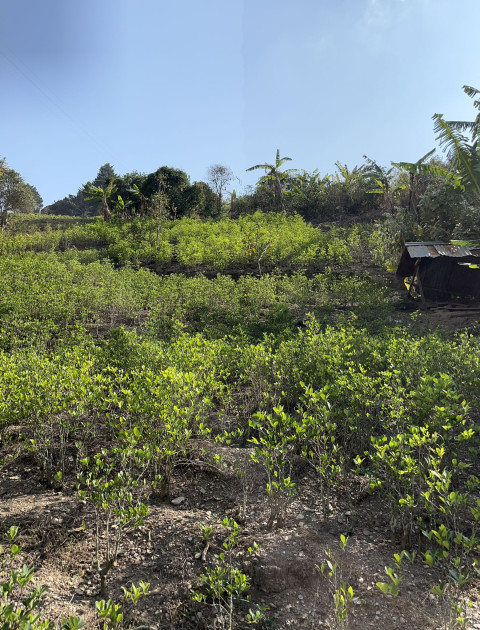
Pien Metaal
The assembly on 22nd November was held as usual in the avenue by the Market, but instead of the usual large stage and amplification, the directory had hired a little pick up truck with a pair of portable speakers, as if to make public display of having left themselves without funds. Among the points to be treated was the outgoing directory’s report on their activities, but they never got so far. As is the custom, after calling the list by Regional, the Minutes Secretary began to read ‘correspondence’, generally consisting in diverse resolutions emitted by Regionals; the third which he read was emitted by the parallel Regional Asunta of Alexander Cruz. The Departamental had never recognized this Regional, but apparently they had some dealings with them, since a certain number of its members from the red zones were present. On hearing the name of Cruz, the members of the organic Regional Asunta started to protest and went for the red zoners, provoking a confrontation which broke up the assembly. Various people took the microphone to demand elections right then, asking the candidates to come up front, but the owners of the sound equipment disconnected it, loaded up and drove away for fear that the fight would get worse and wreck their outfit. The Regionals dispersed to their various hangars, arguing that Machicado and company were effectively out of office as of then and the only alternative was to name an Electoral Committee with a representative for each Regional. The assembly was reconstituted at mid afternoon, but with the declaration that Regionals with internal conflicts would not have representatives. This was accepted by those grass roots who had not already dispersed, and left at that. However, the Presidents of the Regionals went to the head office meeting room and decided to name an Electoral Commission among themselves, with all 17 included. First of all they elected as President of this Commission Mateo Mamani, the rejected President of Regional Chulumani, but arguing ‘you are not well liked in Yungas’ (to put it lightly) had another election, won by Omar Quispe, representing Coripata. However, their task was to call elections: who was to run ADEPCOCA? Some wanted Machicado’s directory to carry on until the day of the elections, but they were too discredited. Eventually they decided to name a Vigilance Committee with one representative for Sud Yungas, one for Nor Yungas, and one for Inquisivi: it was formed by the respective Presidents of the Regionals Chamaca, Milluguaya, and Inquisivi (this province has only one Regional). All this was oligarchic improvisation by the group of Presidents of Regionals, without any basis in the Statute or even precedents of ‘uses and customs’ as the phrase goes.
Bad news and improvisation were to mark the next weeks. The Vigilance Committee announced that they had only found Bs68 en the cash box. Erlin Pari and the other ex directory members presented black rubbish bags full of old bills and handwritten receipts (many of them all written in the same hand, although the name of the person signing them was different) to account for where the money had gone. Pari turned up with a bulging sports bag saying this was the cash he had taken to Coripata, but when it was counted out on the table it only ran to Bs44,000 (6,000 US); the bulk was due to it being all in small used notes. Another commission was named to audit the accounts of previous years, and declared that in 2022 and 2023 the directory had spent around one and a half million Bolivianos annually in ‘expenses’, such as the previously mentioned refrigerios. The Electoral Commission launched a first call for elections to be held in La Paz, then changed the location to the sports stadium in Coripata; the argument was that in La Paz it would be on an open street where it was impossible to restrict entrance, and it was claimed that the government was planning to send hordes of non coca grower MAS militants down from El Alto to vote in their preferred candidate, whereas the stadium has just two gates and it would be possible de check the membership cards of all who wanted to attend at the entrance. The government candidate was identified as Rimber Acuña, elected by Jallurana’s Regional Arapata, although so few members turned up to vote for him that Electoral Commission President Omar Quispe – also suspected of government sympathies – said that Acuña was legally a candidate, but not legitimately. The date was fixed for 8th January 2024, a Monday.
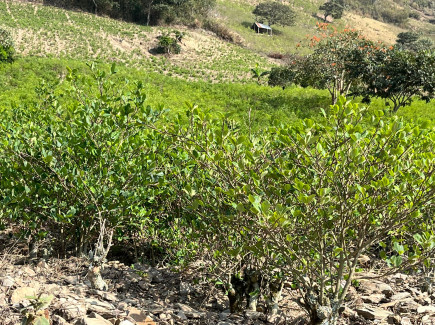
Pien Metaal
In the afternoon of Sunday 7th, the Electoral Commission announced that they were suspending the elections ‘until a new announcement’, followed by muddled declarations about the possibility of holding an election with secret vote (that is, not acclamation) in Villa Fatima, and in the case of Regionals with two candidates both could go on the ballot paper. Shortly after, the Vigilance Commission announced that the elections were not suspended and would proceed the following day as agreed, a position which was immediately supported by other Regionals. It seems that the declared suspension was a strategy on the part of President Omar Quispe and his follower Gonzalo Viscarra, representing Arapata, to procure that most of the membership would not go to Coripata, believing that the election had been called off, and only those in on the plot, that is the minority of government sympathisers, would turn up and vote Acuña in.
The grass roots did indeed turn up in mass in Coripata, although there was no control of membership cards as promised, nor did Machicado’s directory make themselves present to give their outgoing report. The audit commission was not present either; they stayed in the offices in La Paz just in case those threatened with criminal proceedings might try to take advantage of everyone having gone to Coripata to break in and steal the proofs of their misdeeds. Omar Quispe directed proceedings, despite having been twice rejected by his own Regional Coripata, and ignoring the shouts from the floor that he be replaced by his Vicepresident William Luna (representing Irupana). The disturbances began with the presentation of candidates, firstly with those of Milluguaya, who had two candidates, fighting among themselves until one agreed to give up. When Rimber Acuña appeared, people started to throw empty plastic bottles and attempt to assault the stage, and tear gas grenades were thrown three times into the crowd which surged back and forth. Finally, they got to the acclamation. Lizette Torres, candidate for Coroico and the only woman present, received massive support, followed by Freddy Quispe of Asunta, but when it came to announcing the results Omar Quispe insisted in declaring that Rimber Acuña had won second place. A riot broke out (during which Rafa Sánchez, the ex Executive Secretary of the Asunta women’s federation, got onto the stage and forcibly dressed Omar Quispe in a pollera, the traditional woman’s skirt) until William Luna finally took the microphone and announced that Lizette Torres was President and Freddy Quispe, Vicepresident. At that moment he declared that Rimber Acuña had won third place and would be Permanent Secretary.
The next stage was to swear in the new directory, to take place in the so called Pilot Plant, a half abandoned two storey building in Coripata town which was to have been the site of a factory to ‘industrialize’ products based on coca leaves. Six of the seven candidates who had been voted in went there, less Rimber Acuña, but the Electoral Commission had disappeared; apparently they had been chased away or had fled in the struggles that continued after Luna’s announcement. Eventually William Luna and others were located, minus Omar Quispe, and Luna swore in the six present, with the absent Acuña demoted to seventh position (Secretary of Press and Propaganda). Rumours had already circulated that a police contingent was on its way from La Paz, supposedly to intervene and force Acuña’s naming as Vicepresident. At this point a noisy group appeared from the direction of the community of Anacurí, notorious stronghold of MAS in Coripata, shouting “Swearing in, swearing in!”, and among them Acuña y Omar Quispe (who is a son in law of Anacurí). Sticks, stones and tear gas began to fly. Torres and the rest of her directory were hustled away to safety in different directions by their supporters. Acuña’s supporters retreated to a small square near Anacurí, where Quispe swore him in as Vicepresident, flanked by the rejected Mateo Mamani of Chulumani and Alan Jallurana of Arapata. By then night had fallen and the police finally arrived, only to encounter that the rioters had dispersed and there was no need for them to act.
One of the defects – or advantages, according to how one sees it – of voting by acclamation, is that it is entirely possible for a person to vote raising their hand for more than one candidate. In Chulumani, for instance, in a meeting headed by their Committee ad Hoc it was agreed to vote both for Lizette Torres and Freddy Quispe (those still faithful to the rejected directory, in Coripata, were seen with the group of Rimber Acuña). The reason why Torres received such massive support is that, in Andean culture, women are responsible for managing money and resources in the household, whereas men are considered incompetent at handling money; given that the errors of previous directories had always centered on their financial mismanagement, the idea was that with a woman at the helm ADEPCOCA would finally put its finances in order.
However, ADEPCOCA has to cover much more than questions of how to administer its institutional incomes. Coca is a political hot potato even when the government in office is not riven with its own internal conflicts. Another of the criticisms of Machicado’s directory was that they had private meetings and dealings with the government behind the back of the grass roots members, or even behind the back of some directory members and/or the representatives of the Regionals. Among grass roots coca growers, and many of their leaders too, there is a sort of generalized paranoia, or permanent suspicion, with respect to any meeting that their leaders may have with members of the government, except if those meetings were to take place in the context of a massive assembly where they could see and hear everything that went on, which is obviously not a realistic possibility in most situations. A related idea, particularly with respect to the representatives of parallel pro government organizations, is that the mere fact of taking part in a meeting with them and shaking hands, means that one has ‘recognized’ and accepted them. At the provincial level, this attitude blocked any attempt, for instance when the parallel Federation was first organized in Chulumani (2018), to meet with its leaders to look for some way to solve this dissidence: the proposal was rejected insisting that just by contacting them and inviting them to meet, we were ‘recognizing’ them (as having some sort of legitimacy).
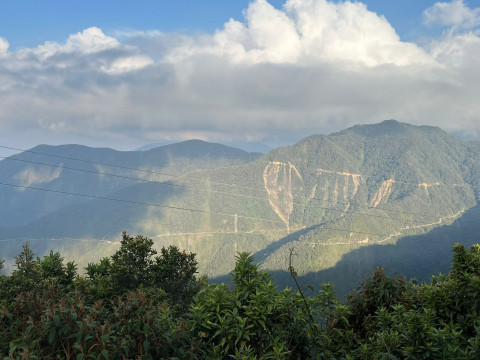
Pien Metaal
In her first actions in ADEPCOCA, Lizette Torres was applauded, for instance when she handed over a summons for Erlin Pari to the President of his Regional Coripata (who is also his father in law, which provoked many giggles among those present, seeing that he was not at all happy to receive the summons, but would be obliged to force Pari to respond, since it would be difficult to argue that he didn’t know where he lived or could not find him). She had also declared that she would meet with government representatives at any level, but always making this public before the membership. One meeting to which she was invited was in Caranavi. Although this is a ‘legalized’ zone for coca growing, it is recent – until the 1990s, Caranavi was known for coffee, not coca, but the international collapse of coffee prices caused peasants to go over to coca growing. A limited number of coca growers were authorized by the government, initially 1,000, but they are now said to have reached 3,000, and although legalized there are limits to the extension of their coca fields; if they exceed this, they should be ‘rationalized’ (the current euphemism for ‘eradicated’).
The ‘traditional’ producers protest against these new zones of production and want them to be eradicated. The meeting in question was to inaugurate rationalization procedures in Caranavi, so they should have applauded Torres’ presence there: but it was classed as ‘treason’ (traición, mortal sin in Bolivian peasant syndicalism) because she was side by side and shook hands with Ernesto Mamani, the aforementioned pro government leader of COFECAY. As she said to me in a private conversation, she could not determine the list of participants in that meeting, and greeting him did not mean that she ‘recognized’ him as a legitimate representative of Yungas; but, as I have explained, many of her members do not think in this way. Even worse, on the 8th March, for International Women’s Day, she was named to receive a decoration as ‘Woman of Steel’ on the part of the Bolivian government, and went along to receive it. It was handed over by Freddy Velásquez, actually a member of parliament, but previously the founder and promotor of CONALPRODC, the organization of ‘carpeteros’ which he manipulated to support MAS and favour the parallel ADEPCOCA. Velásquez was not elected directly by the Yungas electorate.1 She was photographed embracing him as he handed over the decoration, and this image circulates as another proof of ‘treason’.
Torres has a further problem, which is structural in Bolivian syndicalism. These organizations are based in geographic representation. For example, in ADEPCOCA each Regional names a candidate, and that candidate aims at the presidency. They do not come with a whole group of people who will occupy the subordinate posts if their head candidate should win. The subordinate posts will be occupied by candidates from other territorial groups. When the winner has demonstrated a crushing victory over the second place, this is not usually a problem, but when the victory was by a narrow margin, the follower has motives for trying to get the winner thrown out. In Freddy Quispe’s case, until Torres’ surprise candidacy appeared, he was virtually President elect, and a sizeable faction – including such important figures as the former Self Defense Committee leader Cesar Apaza – are more or less openly supporting him to displace the ‘treasonous’ Torres, who is thought to have lined up with the ‘arcistas’. There is obviously a sizeable dose of male chauvinist prejudice behind this too. Apart from a traitor, they also denounce her as ‘authoritarian’, another mortal sin in peasant syndicalism, and as is well known (recall Hillary Clinton, for example) dominant conduct in a woman is seen as ‘authoritarian’, whereas in a man it is admired as showing ‘the gift of command’ or ‘leadership capacity’ – Freddy Machicado was criticized precisely for not being able to take decisions and relying on others to make them for him, and being a man it was considered a serious defect.
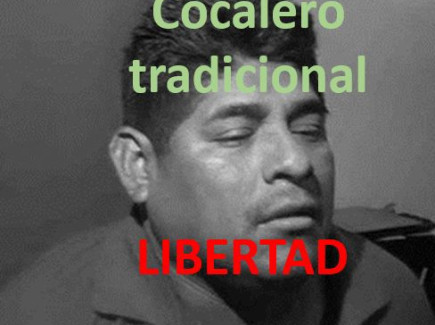
As seen from the Yungas, the government knew that no way Rimber Acuña was going to win the presidency of ADEPCOCA, but the idea was to get him in as Vicepresident any old how; then he would find out how to get rid of Lizette (or Freddy, if it were the case) with some false accusation - entirely believable, given the submission of Bolivian ‘justice’ to whoever happens to be in government – and take over the presidency, to ‘hand over ADEPCOCA to the government’, and thence, as many imagine, install a system Peruvian style where the government sets the price of coca. This last is entirely imaginary; it is more convenient for the government – any government – in Bolivia, that ADEPCOCA should continue to be formally independent. What the government wants is to get in a directory which will obey their orders, that is, which they can manage by remote control.
Why exactly they should want this is another question, not limited to ADEPCOCA. With respect to the field of study of social movements in Bolivia in recent decades, ADEPCOCA is a particular case: neither has it just given over to the government (case of the COB), nor have its parallels pro government been able to carry on, and when they have – the case of Arapata – this is due to local structural factors, which according to the case may have been established by government decisions (the ‘red zones’ in Asunta). Neither have its congresses where it should have renovated its directory degenerated into open battles from which no directory more or less legitimate emerges – as in the case of the recent congress of CONAMAQ in Oruro. It is almost as if it has become a point of honour on both sides – that the government just has to get ADEPCOCA openly on its side, and ADEPCOCA has to stand against the government, because to do otherwise would be to betray all these years of struggle and sacrifice. Rimber Acuña has presented a legal action demanding that he should be recognized as Vicepresident of ADEPCOCA, against Torres, Freddy Quispe, and several members of the Electoral Commission (not, of course, those who tried to impose him in second place). Torres responded by registering the domiciles of the Electoral Commission members in their disperse rural communities, a cost in time and money to hand over the summons to each one: so much time that they could not all be found for the first hearing, and this has been put off till 25th March. Acuña’s arguments are feeble – he claims that there are films of the election which prove that he was the second most voted, but any film which covered the whole stadium and not just his claque to one side of the stage would show the opposite; and that the swearing in should have been in the Pilot Plant on the 9th, not the same day as the elections, but that was the version of the first call to elections programmed for the city of La Paz, whereas the second one programmed for Coripata stipulated that the elected candidates would be sworn in there on that afternoon. However, the strength or weakness of the arguments on either side is what matters least in Bolivian ‘justice’.
Like Daynor Choque (and Juan Elias Cocarico, the only member of Machicado’s directory who is still in prison) Cesar Apaza declared that he was not going to accept the abbreviated process but insists on a full trial, where his lawyers would publish the proofs they had obtained about -among other things – police infiltration1 in Alanes’ market, to show who was really responsible for setting it on fire. However, after being transferred back down to San Pedro from Chonchcoro, his health deteriorated. For a time, a woman MP from the opposition alliance Comunidad Ciudadana was paying for his physiotherapy, but she eventually came clean proposing that in return he should stand for their alliance in 2025. He said that he was not going to be used as a flag for them, on which she cut off the therapy, while his hearings were constantly put off with manipulated pretexts. His hemiplegia was complicated by diabetes, and this led to another surprise when on 18th January he was released from San Pedro on house arrest in exchange for having accepted the abbreviated process – ‘otherwise I would have left here in a coffin’, he said. Among the conditions of his house arrest are that he has to reside in Villazón, in the extreme south of the country and over a thousand kilometers from where he lives in Yungas; this was the address on his identity document (presumably because he had a carpeta licence to sell coca there) but it also prevents him from intervening directly in Yungas politics. It remains to be seen what will happen with Cocarico and the other prisoner, Raúl Uria of the youth organization Juventud Yungueña. The latest news is that Acuña’s hearing was once more suspended, this time for the 8th of May. A recording was leaked of a phone call between Marcelino Llanque (Secretary of Organization) and Freddy Velasquez, where the later claimed that he could put off Acuña’s case for as long as they wished so long as the lawyer Evelin Cossio was dismissed from ADEPCOCA. She was one of Cesar Apaza’s legal team and the most determined to go for a full trial; she personally expressed her disappointment to me when he accepted the abbreviated process, and has now indeed been dismissed from ADEPCOCA. It is not clear why the government should object to her in particular; perhaps this was a symbolic demand to indicate submission to the official line in return for benefits (blocking Acuña’s petition). Many are now convinced that the new leadership has indeed gone over to the government, and if they are right, then it will no longer be necessary to support Acuña, since the objective which he aimed at has already been achieved.
